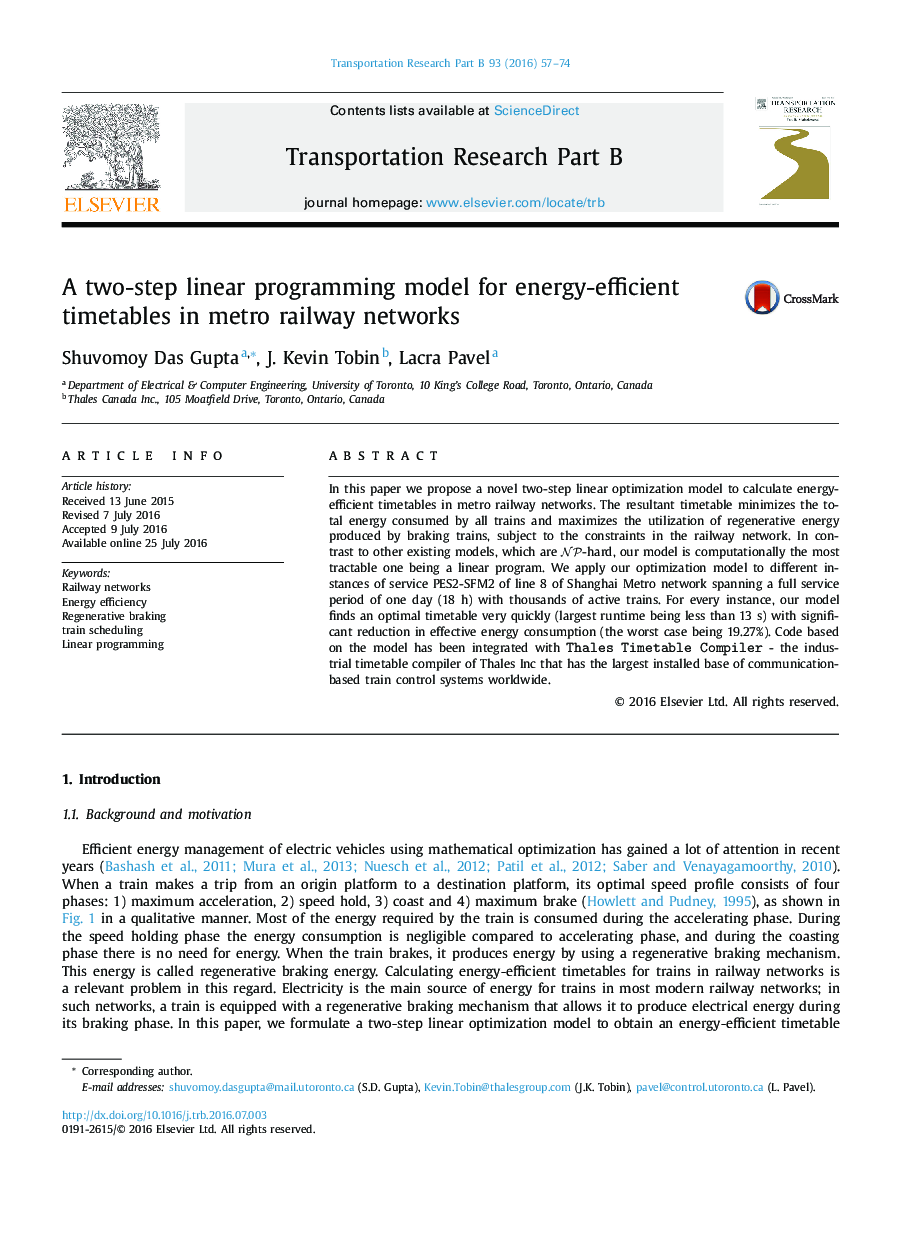| Article ID | Journal | Published Year | Pages | File Type |
|---|---|---|---|---|
| 5127175 | Transportation Research Part B: Methodological | 2016 | 18 Pages |
â¢A novel two-step linear optimization model for energy-efficient metro railway timetables.â¢Minimizes the total electrical energy consumption of all trains.â¢Maximizes the utilization of regenerative energy produced by braking trains.â¢Computationally very tractable.â¢Has been integrated with the industrial timetable compiler of Thales Inc.
In this paper we propose a novel two-step linear optimization model to calculate energy-efficient timetables in metro railway networks. The resultant timetable minimizes the total energy consumed by all trains and maximizes the utilization of regenerative energy produced by braking trains, subject to the constraints in the railway network. In contrast to other existing models, which are NP-hard, our model is computationally the most tractable one being a linear program. We apply our optimization model to different instances of service PES2-SFM2 of line 8 of Shanghai Metro network spanning a full service period of one day (18 h) with thousands of active trains. For every instance, our model finds an optimal timetable very quickly (largest runtime being less than 13Â s) with significant reduction in effective energy consumption (the worst case being 19.27%). Code based on the model has been integrated with Thales Timetable Compiler - the industrial timetable compiler of Thales Inc that has the largest installed base of communication-based train control systems worldwide.
